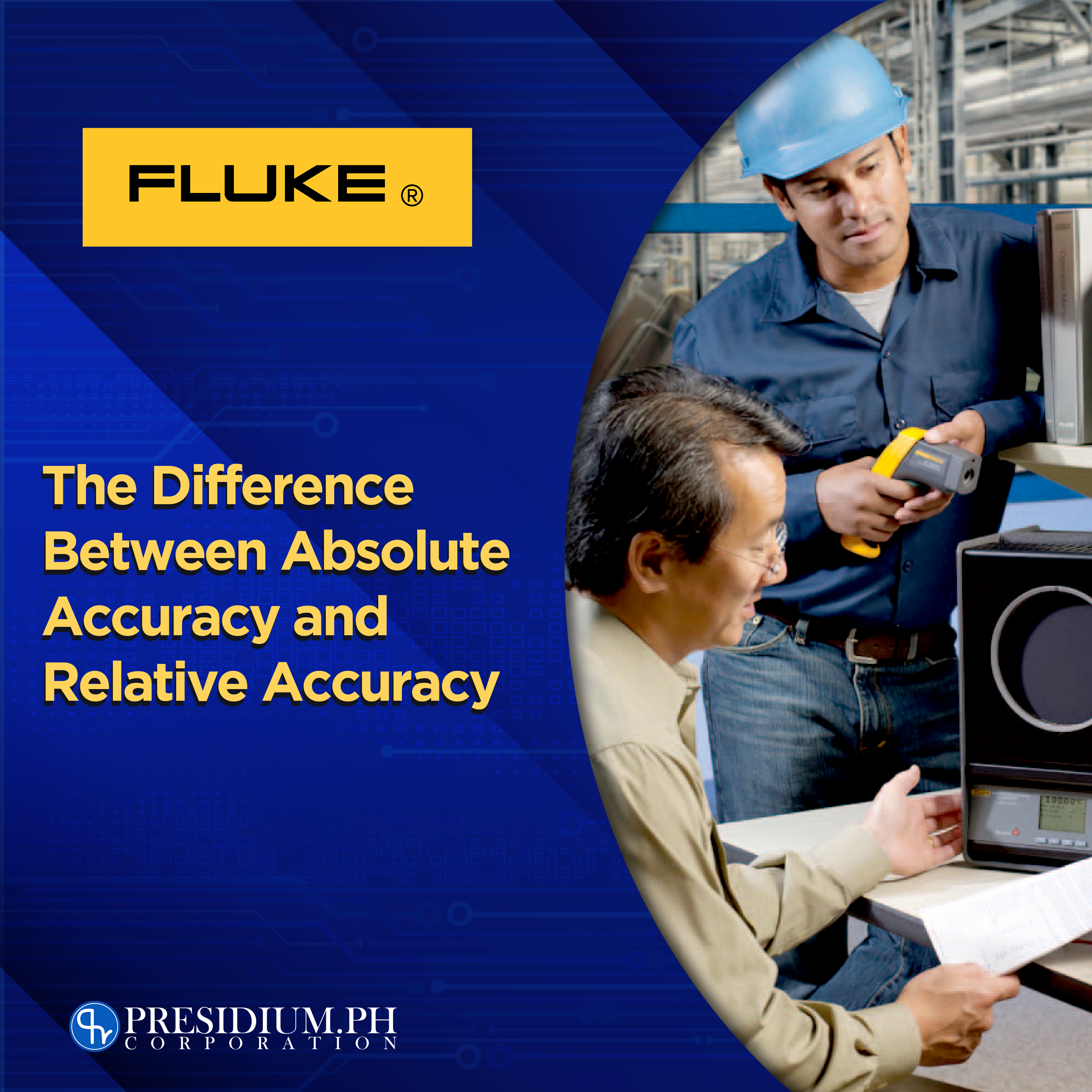The Difference Between Absolute Accuracy and Relative Accuracy
These types of accuracy are commonly found in IR thermometers. So, when you have one, knowing the difference between absolute accuracy and relative accuracy will come in handy one way or another. So, first things first, what’s the catch between accuracy and IR thermometers? Don’t get us wrong, Fluke’s IR thermometers do not come short when it comes to performance, but rather, you would want to take note of a few extra tips to ensure accuracy in all operations using IR Thermometers.
This is applicable in different sectors.
Accuracy is of vital importance when it comes to any testing and maintenance operation. IR thermometers can be used in building automobiles, electrical components, processing food, and maintaining electrical systems. Using an IR thermometer can be quite beneficial for these types of projects and proves to be a safe and effective way to accurately inspect any electrical, electronic, and mechanical work.
Trust that these are the tools that can do the job well when it comes to sensing even the most subtle temperature differences that can break any of your machines and devices. What’s amazing about them is that it also promises workers safe troubleshooting and maintenance rounds by letting you test from a safe distance. So, if you’re testing hot, hazardous, or even moving targets, you’ll have the confidence to do tests without worrying about getting injured.
The two basic types of accuracy in IR Thermometers.
There are two types of accuracy related to infrared thermometers, and that is absolute accuracy and relative accuracy. Both entail a proper understanding of the ins and outs of an IR thermometer and of course, proper calibration. However, let’s get into the deep end of each to exactly know how they work.
Both relative and absolute accuracy works together. Relative accuracy only deals with certain operations. If the temperature of the target is not in comparison to the rest of the machine this entails relative accuracy. Ideally, this takes place when you’re testing or inspecting electrical and electromechanical systems, building envelopes, and circuit boards. Let’s take circuit boards as an example. When you find that one part of the component is hot then it might be an indication of an overload. Then again, if it shows that it’s cold, then you might be dealing with a failure. See how it only affects a part of the component but not a whole?
On the other hand, to achieve absolute accuracy, your tool needs to undergo proper calibration. Unlike relative accuracy, which deals with the action of testing and maintenance, absolute accuracy deals with your Fluke tool’s performance and how well it can produce results. Of course, there are certain precautions for you to get it right, but nonetheless, without proper and daily calibration, your IR thermometer might not produce on-point results.
Remember, that Fluke tools are also prone to deterioration and depending on how you care for them, they also have the tendency to decrease in performance which is why calibration is very important for Fluke tools.
Get your Fluke tools through an authentic source!
Hey, you made it to the bottom! Are you currently looking for the best-performing test tools in the market to run daily maintenance checks on your machines? You’re in luck cause Presidium PH is an authorized distributor of Fluke test tools in the Philippines. Prevent these faults from penetrating your machine by using the best test tools there are!
If you want to know more about Fluke tools and their functions, visit our website for more info! This is a one-stop-shop for the best test tools within Metro Manila.

